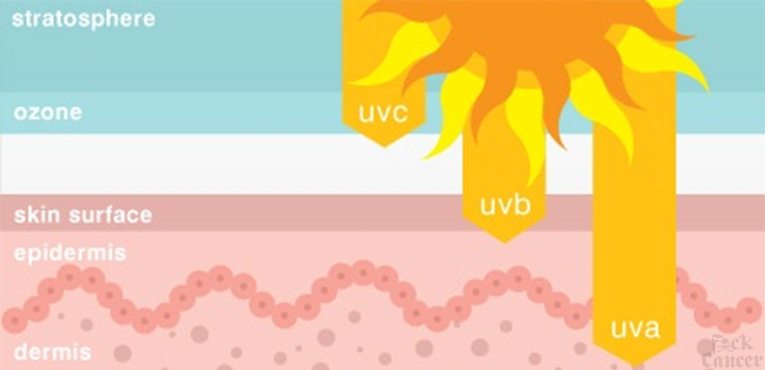
Your skin type is one of the main factors in your risk for skin cancer. There are six skin phototypes, going from light to dark. Those individuals with skin types I and II face the highest risk of developing skin cancer, while types V and VI are at the lowest risk. That is because those with more pigmentation (types V and VI) have more natural protection from the sun. However, people with darker skin can nonetheless get skin cancer. Like light-skinned people, they should be cautious of the sun and have regular examinations by a doctor. Visit the Skin Cancer Foundation’s Skin Types and At Risk Groups Guidelines page for more information.
What Are The Risk Factors for Skin Cancer?
A risk factor is anything that affects your chance of getting a disease such as cancer. Different cancers have different risk factors. For example, unprotected exposure to strong sunlight is a risk factor for skin cancer, and smoking is a risk factor for cancers of the lung, mouth, throat, kidneys, bladder, and several other organs.
But risk factors don’t tell us everything. Having a risk factor, or even several risk factors, does not mean that you will get the disease. And many people who get the disease may not have had any known risk factors. Even if a person with basal or squamous cell skin cancer has a risk factor, it is often very hard to know how much that risk factor may have contributed to the cancer.
What Are The Risk Factors for Melanoma Skin Cancer?
- Ultraviolet(UV) light exposure
- Moles
- Fair skin, freckling and light hair
- Family history of melanoma
- Personal history of melanoma or other skin cancers
- Age
- Gender (men are at higher risk)
- Xeroderma pigmentosum (an inherited skin condition)
What are the risk factors for basal and squamous cell skin cancer?
- Ultraviolet (UV) light exposure
- Having light-colored skin
- Older age
- Male Gender
- Exposure to certain chemicals
- Radiation exposure
- Previous history of skin cancer
- Long-term or severe skin inflammation or injury
- Psoriasis treatment
- Xeroderma pigmentosum (XP)
- Basal cell nevus syndrome (Gorlin syndrome)
- Compromised immune system
- Human papilloma virus (HPV) infection
- Smoking
Source: American Cancer Society: What are the risk factors for basal and squamous cell skin cancers? and What are the risk factors for melanoma skin cancer?
